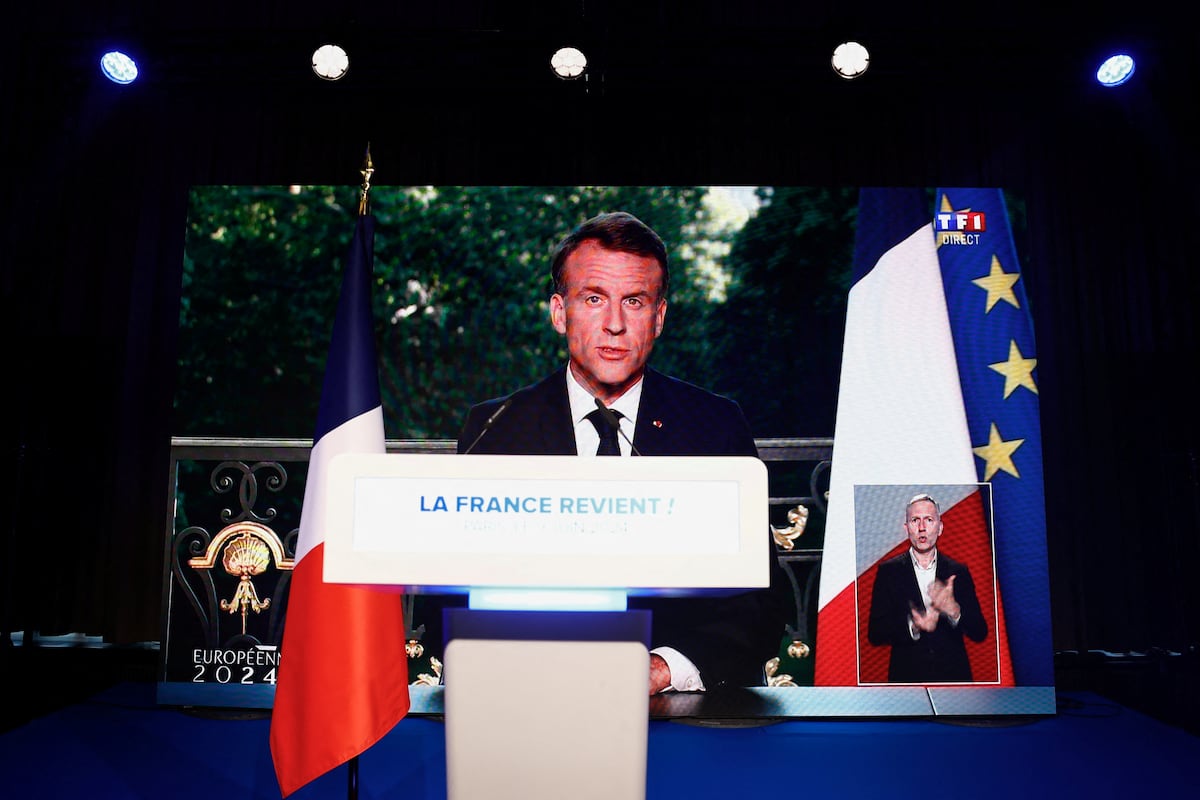Landslide Victory for Far-Right in European Elections Sends Shockwaves Through Europe
The recent European elections have seen the far-right Rassemblement National (RN) party, led by Jordan Bardella, secure a significant victory in France, dominating with 32.4% of the vote. This triumph marks a substantial increase from their 2019 results and has prompted French President Emmanuel Macron to announce the dissolution of the National Assembly. Macron’s Renaissance party struggled, garnering only 15.2% of the vote, a sharp decline from five years ago. The Socialist Party-Public Square coalition, led by Raphaël Glucksmann, managed to secure third place with 14.3%.
Voter turnout surpassed 50%, the highest in the last 30 years for a European election in France, underscoring the monumental nature of these results. Macron’s response was swift and decisive, warning about the threat posed by nationalist and far-right forces to both France and the European Union. The legislative elections are set for June 30, with a potential runoff on July 7.
A Historic Win with Far-Reaching Implications
This electoral outcome is reminiscent of the historic 1984 victory by Simone Veil's centrist coalition, albeit with a stark ideological contrast. The RN's success signifies a paradigm shift in French politics, potentially setting the stage for a broader acceptance of the party within the national political landscape. Bardella and Le Pen's framing of this election as a referendum on Macron’s presidency seems to have paid off, creating significant momentum for the far-right as they look towards the 2027 presidential elections.
The European Parliament elections saw similar trends across the continent. In Germany, the far-right AfD has made notable gains, although the center-right European People's Party (EPP), including the CDU/CSU, remains the largest bloc. The SPD and the Greens encountered disappointing results, reflecting a broader continental shift towards right-wing populism.
Macron’s Risky Political Maneuvers
Macron's swift action to dissolve the National Assembly can be seen as both a defensive and a strategic move. By calling for early legislative elections, Macron aims to re-establish his mandate and curb the growing influence of the far-right. His speech highlighted the overriding necessity to tackle climate change, external threats, and preserve national cohesion. The French President also hinted at forming new political alliances under the banner of 'New Europeans' to solidify liberal forces within the EU. This proposed alliance, however, has met with mixed reactions.
Wider European Context
Across Europe, the elections have been marked by significant gains for right-wing parties. In Austria, the far-right Freedom Party (FPO) emerged as the leading force, while in Bulgaria, the conservative party GERB maintained its stronghold. Estonia and Lithuania, however, saw markedly low voter turnout, indicating varying levels of engagement across different EU nations. The shift towards right-wing parties is seen as a response to growing concerns over migration, economic stability, and EU bureaucracy.
These outcomes reflect a continent grappling with numerous crises, from the aftermath of the Covid-19 pandemic to the ongoing war in Ukraine, and a complex mix of economic challenges. As Europe processes these seismic political shifts, the landscape of the EU and its approach to critical issues like climate change and migration may undergo significant transformations.
- The participation rates in this year's elections have been a subject of significant interest, showing varied engagement levels across the continent. Italy, Slovakia, Latvia, Malta, and other EU countries saw different voter turnout trends.
- Macron's attempt to consolidate liberal forces into a new alliance is aimed at countering the rise of the far-right, emphasizing the need for a unified pro-European and pro-democracy stance. This move comes ahead of the legislative elections, which will be crucial for determining the direction of French policy and its role within the EU.
- The European Parliament's current composition indicates that traditional parties, while still holding significant seats, face mounting pressure from emerging right-wing entities. This dynamic presents both challenges and opportunities for navigating the future legislative landscape in Europe.






